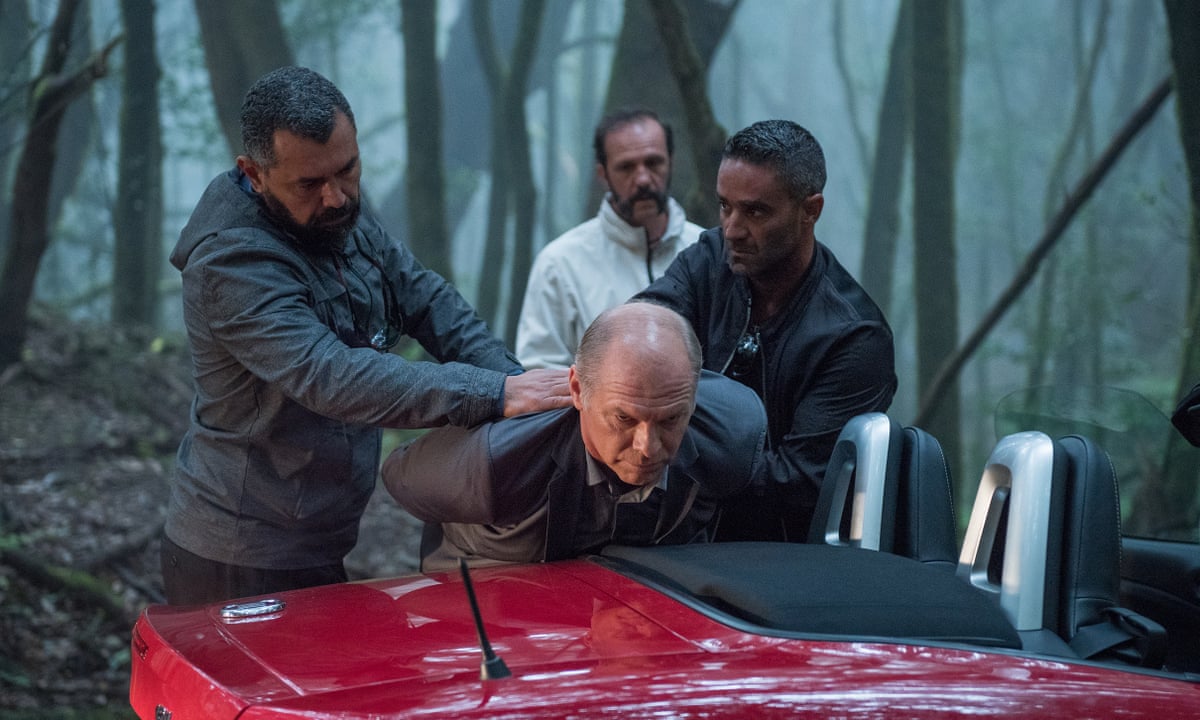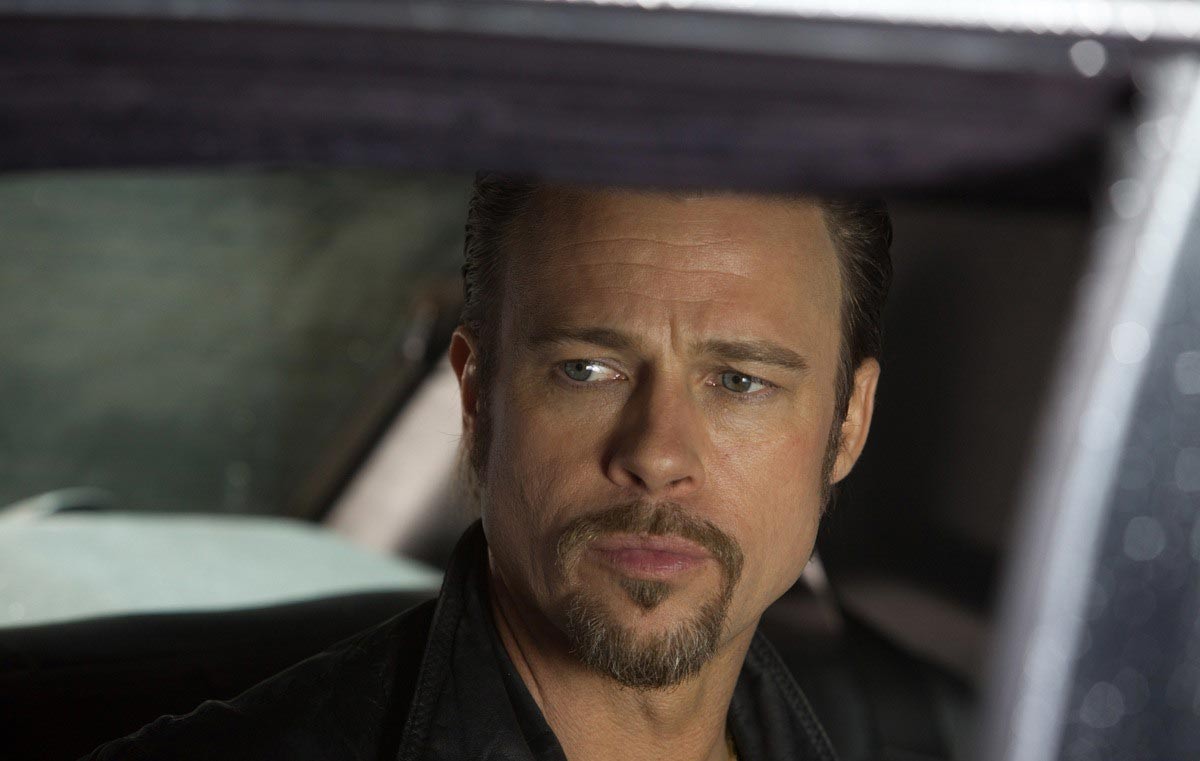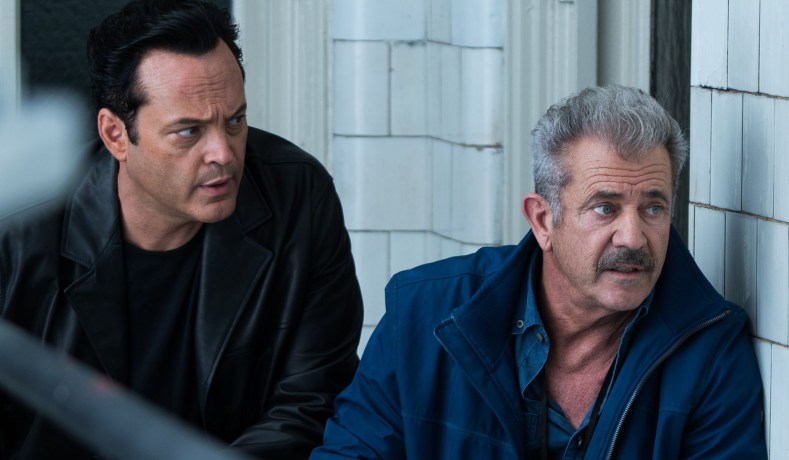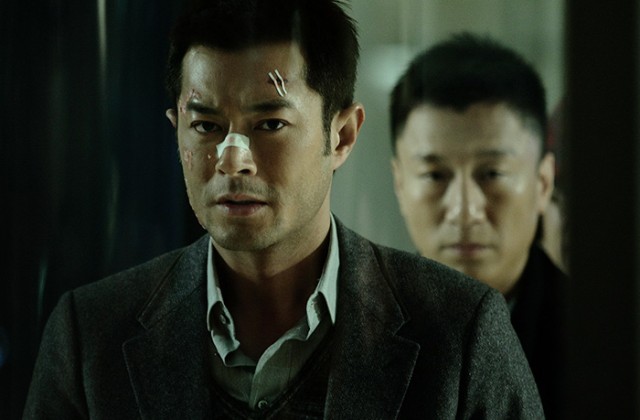5. Custody (2017)

An unusual choice for this list, no doubt, since at first glance “Custody” is your typical festival favorite, with its austere visual style, emphasis on realism, and grim subject matter, telling the story of an abusive father who insists on being a part of his children’s life, in spite of their (and their mother’s) desire to the contrary.
A far cry from the sleazy genre pictures one would expect to see in a list of crime movies, for sure, but the case can be made that ingrained beneath the film’s laboriously polished exterior is good old-fashioned exploitation DNA, since Dennis Menochet’s dad character is poised basically as a movie monster and the structure even mimics the progression of a stalker thriller: his victims keep trying to elude him, just as his tactics for getting to them become more and more extreme.
This pattern comes to a screeching climax in the movie’s final 20 minutes, one of most agonizing and virtuoso sequences of sustained tension of 2010s cinema. This statement may seem like empty hyperbole for those who haven’t seen it, but there are few other scenes made this decade that can rival its insane progression of terror, constructed to perfection by director Xavier Legrand, who starts out the sequence with long static shots and hatches up the cuts as the threat becomes more serious. A masterclass of filmmaking that you won’t soon forget.
4. The Whistlers (2019)

Cinephiles have become accustomed to expecting great cinema from Romania, a country that has enjoyed a new wave in which talented filmmakers like Cristi Puiu and Cristian Mungiu have flourished, delivering some of the most ambitious and challenging work that has come out of Eastern Europe in the 21th century.
What one usually doesn’t expect to see from the Romanian film industry, however, is a colorful and hugely entertaining crime movie. But cinema is full of miracles, and so that’s exactly what we have in the form of “The Whistlers”: a brisk caper about a crooked cop who joins forces with a criminal’s mistress and the higher mob bosses who control him, to learn a whistling language in an effort to break the guy out of jail and retrieve a bag of money that has gone missing in a deal gone wrong.
In the great tradition of crime stories, the plot is made up of an ingeniously twisting web of double crosses between the characters, each of whom has their own private motivation that directly clashes with their stated goals. It’s delightful to see it unfold, made all the better by the keen sense of pace and visual flair of the film.
3. Killing Them Softly (2012)

The reunion between Andrew Dominik and Brad Pitt after the instant classic “The Assassination of Jesse James by the Coward Robert Ford” failed to garner even a fraction of the same acclaim – “Killing Them Softly” came and went with little fanfare and never received a widespread critical reevaluation, of which it’s very much deserving.
Sure, the movie is as opposite as it can be from the lyrical tone and epic reach of “Jesse James,” with its lean storytelling economy and unsparing cynicism. But the same distinct voice applied to a traditional American genre that made the original Dominik/Pitt collaboration so special is very much present in “Killing Them Softly,” one of the most genuine heirs of New Hollywood to have emerged since the collapse of that era.
The film this is most indebted to, perhaps, is “The Friends Of Eddie Coyle,” a quintessential piece of ‘70s American crime cinema that, not coincidentally, is also based on a book by George V. Higgins; both have a realistic, straightforward, un-stylized look at the world of small-time criminals who are not substantially different from any other blue-collar worker in capitalist society. Dominik portrays the series of hits and heists very matter-of-factly: there’s nary an action scene in the movie, as the ins and outs of the mob-mandated killings carried out by Pitt’s character are just a bureaucratic function of the larger system of the country in which they all exist.
“Killing Them Softly” is an indispensable treat for any cinephile who appreciates ‘70s American cinema, the golden age of realistic crime thrillers for grown-ups, like “Dog Day Afternoon” and “Serpico.”
2. Dragged Across Concrete (2018)

Depending on who you ask, “Dragged Across Concrete” is either the latest empty provocation by an juvenile edgelord filmmaker, or another triumphant, sophisticated revamp of classic exploitation tropes from S. Craig Zahler.
There are enough elements in this film to plausibly sustain either opinion: no matter how much he denies it in interviews, Zahler is clearly at least a little antagonistic to progressive culture in mainstream cinema (nobody casts Mel Gibson as a racist, abusive cop without knowing what they’re doing, even if it’s ostensibly ironic casting), but despite that, his films always seem more interested in down and dirty genre machinations than any sort of political commentary. Which is for the best, since his politics are at best glib, but as an exploitation director he has basically no equal among his contemporaries.
With only three movies to his name so far, Zahler has already established his auteur voice, and he only gets better at refining his trademarks with each new picture. The literary dialogue, leisurely pace, and shocking, sudden spurts of ultra-violence have never been employed to better effect in his career than they are in this extremely mean and brutal thriller.
Narrative patience and sadistic thirst for cinematic violence (which more than delivers on the brutality promised by the title) makes for a unique and nothing less than engaging combination, which hits its zenith in “Dragged Across Concrete.” Your mileage may vary, of course, but any genre fiend will find lots to love here.
1. Drug War (2012)

Because it was the first mainland film by Hong Kong titan Johnnie To, there was some trepidation by fans as to whether “Drug War” would live up to expectations or if To’s style would be pruned due to the geographical move and all that implied. The concerns, mercifully, were proven wrong: the film retains the director’s formal mastery and, most surprisingly, all the thematic bite that defined his previous work – “Drug War” owes nothing to the overwhelmingly impressive action scenes of “Exiled” nor to the social commentary of “PTU.”
The film is one of the nastiest and most relentless of To’s career, a director known for emphasizing character bonding and for including grace notes in-between his masterfully staged shootouts. “Drug War,” by contrast, has no time for such things: it’s a laser-focused procedural that moves with cirurgical narrative precision. Not a frame is out of place, not a cut is unmotivated; even by To’s standards the formalism of this film is awe-inspiring.
That last paragraph fools you into thinking the movie is only interesting to bigheads who study film language, but rest assured, “Drug War” is also one of the greatest action movies of the century, featuring a climatic shootout that rivals any in cinematic history, even Michael Mann’s masterclass in “Heat.”